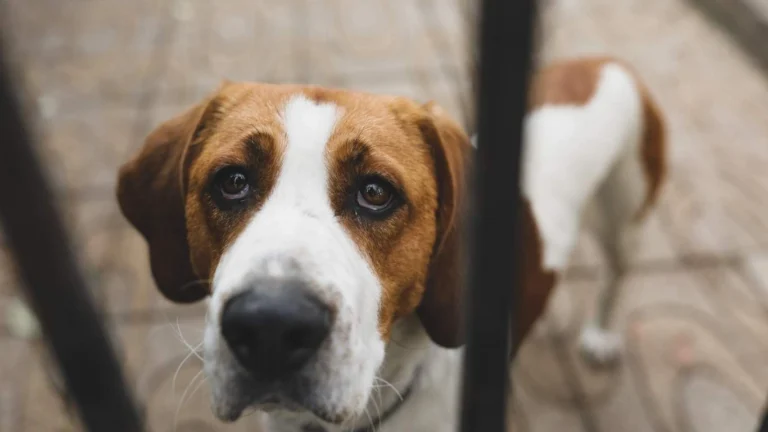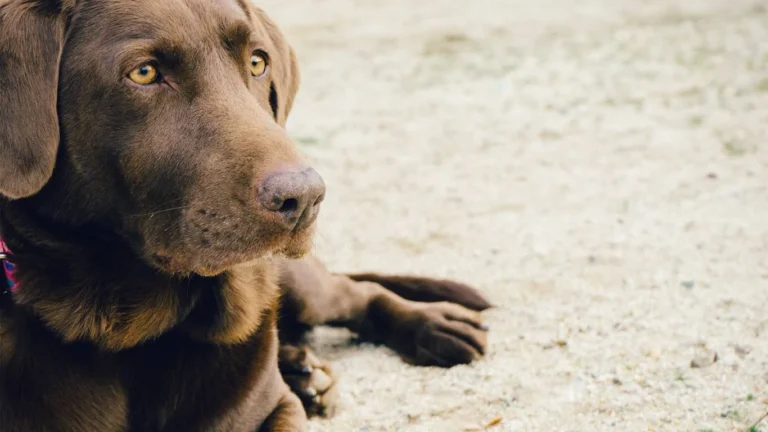Shocking Truth: Can Dogs Get Colds from Humans or Not?
If you’ve ever found yourself sniffling on the couch with a cold, your pup curled up beside you, you might’ve wondered, can dogs get colds from humans? As a Veterinary Assistant with a focus on nutrition, I’ve been asked this so many times during consults—especially during flu season. It’s totally understandable! After all, our dogs are practically family, and when we’re under the weather, we worry about passing it on. Let’s dive into this topic together because the answer is a bit more nuanced than a simple yes or no.
Canine Colds: Are They the Same as Ours?

Alright, first things first—dogs do get colds. But here’s the catch: the viruses that cause colds in humans and dogs are usually different. The common cold in humans is often caused by rhinoviruses, while dogs tend to pick up their version of a cold from things like canine parainfluenza, bordetella bronchiseptica (yup, the kennel cough culprit), and a few other dog-specific viruses.
So, can dogs get colds from humans? Technically, it’s pretty rare. Most human cold viruses don’t jump species easily. That said, there are exceptions—especially when it comes to more serious viruses like the flu. During the height of certain influenza outbreaks, there have been documented cases of animal-to-human and human-to-animal transmission, though it’s still very uncommon.
But My Dog Got Sick After I Did!
This is something I hear a lot in the clinic. Someone gets sick, and a few days later, their dog starts sneezing, coughing, maybe even acting more tired than usual. While this might feel like more than coincidence, it’s not always a sign of direct transmission.
- Environmental exposure: Your dog may have picked something up at the park or during a walk.
- Weakened immune system: Dogs can get run down just like we do, and being around an ill human can add stress to their environment.
- Different illness, same symptoms: Dogs and humans share similar signs like sneezing or nasal discharge, but the root cause may differ.
Honestly, from personal experience, I’ve seen dogs “mirror” their owners’ energy when they’re not feeling great. When my clients come in sick, their dogs are often lower energy too. It’s heart-melting how empathetic dogs can be!
How Dog Colds Work (And Why They’re No Joke)

While a dog cold might sound minor, it can be uncomfortable and even risky—especially for puppies, senior dogs, or pups with existing health issues. Symptoms to watch for include:
- Runny nose or nasal congestion
- Watery eyes
- Frequent sneezing
- Mild coughing
- Loss of appetite
- Lethargy
In my practice, I always advise pet parents not to brush off these signs. Even if it’s “just a cold,” it’s best to monitor symptoms closely and consult your vet if anything worsens. I’ve seen cases where something that looked like a cold turned out to be early pneumonia or another respiratory infection needing treatment.
Human Flu and Dogs: Should You Be Concerned?
Here’s where things get a little tricky. While can dogs get colds from humans? is mostly answered with a “not really,” the flu is a bit different. Certain strains of influenza viruses have been known to jump from humans to pets—particularly in rare but documented outbreaks. One notable example was the H1N1 flu, which did raise concerns for cross-species transmission.
If you’re dealing with the flu (not just a cold), it’s a good idea to play it safe:
- Limit close face-to-face contact with your dog.
- Wash your hands frequently before feeding or petting them.
- Disinfect shared surfaces like couches, bedding, and floors.
I always tell clients that taking a few simple steps like these can go a long way in keeping everyone—both human and canine—feeling their best.
How Nutrition Can Help Your Dog Recover

As someone deeply involved in pet nutrition, I can’t stress this enough: good food is powerful. When a dog isn’t feeling well, the right nutrition can help support immune function and promote faster recovery. If your pup has a mild cold, consider these supportive tips:
- Add bone broth to their meals—it’s comforting, hydrating, and gentle on the stomach.
- Offer small, frequent meals if they’ve lost their appetite.
- Incorporate omega-3 fatty acids (from fish oil) to reduce inflammation.
I remember working with a sweet older retriever who wasn’t eating much due to congestion. We introduced a warm, nutrient-rich broth with a touch of turmeric and a sprinkle of freeze-dried liver to entice her appetite—and she perked up in just a couple of days!
When to Worry: Signs Your Dog Might Need a Vet

Most of the time, if your pup catches a cold—or whatever we’re calling the doggy version of it—it’ll pass in a few days with a little TLC. But sometimes things can take a turn. In the clinic, I’ve seen plenty of cases where what started out as just a runny nose ended up being something more serious.
Here are a few signs that you should definitely call your vet:
- Persistent coughing: Especially if it sounds like a honk—this could point to kennel cough.
- Green or yellow discharge: From the nose or eyes, it might signal a secondary infection.
- Wheezing or difficulty breathing: Not normal. Get help right away.
- Loss of appetite for more than 24 hours: Could indicate your dog’s not just feeling “meh,” but actually unwell.
- Lethargy that goes beyond “lazy day” tired: You know your pup best. If their energy is way off, it’s worth checking out.
There was one sweet dachshund that came in—his pet parent thought it was just allergies. But after listening to his lungs and running a quick test, we found he was developing early-stage pneumonia. Catching it early made all the difference. Trust your gut and don’t be afraid to ask questions when something feels off.
Preventative Tips: Keep That Sniffle From Spreading

Even though the odds of passing your cold to your dog are low, it’s still smart to practice a few basic hygiene tips when you’re sick. In the same way we wouldn’t want to get Grandma sick during flu season, we should try to protect our pups too.
Here’s what I usually recommend to clients:
- Keep snuggle time minimal when you’re sick—tough, I know, but worth it.
- Cover coughs and sneezes (yeah, even around your dog—it’s good practice anyway!).
- Wash hands before handling food bowls or treats.
- Disinfect shared items like bedding, blankets, and toys—especially soft fabric ones.
I personally keep a little “sick kit” at home: disinfectant wipes that are pet-safe, an extra dog blanket I can wash on hot, and even some gentle air purifiers to keep the vibe fresh when I’m feeling under the weather.
What About Other Pets?
While we’re on the topic of human-to-pet illness, let’s not forget other furry (or feathery) family members. Cats, for instance, can be vulnerable to certain respiratory infections that may have cross-species risks—though it’s rare. Birds, rabbits, and small mammals are even more delicate. If you share your home with multiple pets and you’re sick, try to quarantine yourself a bit—not just for them, but for you too.
Boosting Your Dog’s Immune System Year-Round

Cold or no cold, a strong immune system is your dog’s best defense. That’s where my background in pet nutrition really comes into play. Over the years, I’ve worked with pet parents to build immune-supportive plans that go beyond just kibble.
Here are a few things I usually suggest:
- Quality protein sources: Think turkey, salmon, or chicken—not just mystery meat meals.
- Fresh fruits and veggies: In moderation, things like blueberries, pumpkin, or spinach can provide antioxidants.
- Supplements: I’ve had great success using colostrum, probiotics, and elderberry extract (dog-safe formulations only, of course).
- Exercise and sunshine: Yep, just like us—movement and Vitamin D go a long way for wellness.
I remember working with a golden retriever who used to get every bug that went around the dog park. Once we tweaked her diet and added a few simple immune-boosters, she went an entire year without a single vet visit—except for her annual checkup, of course. That’s the dream, right?
Real Talk: Dogs Are More Resilient Than We Think
Sometimes we worry so much (guilty as charged) that we forget how tough our pups really are. They’re built to handle a lot, and most of the time, a sniffle is just a blip on their radar. But still, a little awareness goes a long way. So if you’re curled up on the couch, tissues in hand, wondering, can dogs get colds from humans?—rest easy. You’re probably not passing it on, but with a few small precautions and some love, your furry best friend will stay healthy by your side.
Holistic Care for a Sniffly Pup

So by now, we’ve covered the basics of doggy colds, cleared up the confusion about whether dogs can catch colds from humans (spoiler: it’s not common!), and talked a bit about boosting immunity. But there’s still more to the wellness puzzle—especially for pet parents who like to take a more holistic approach. I get it—I’m all about combining traditional vet care with natural support when appropriate.
One of the most common things I get asked in my day-to-day as a Veterinary Assistant with a nutrition focus is, “Is there anything natural I can do to help my dog feel better?” And yes, there absolutely is. But with a small disclaimer: always chat with your vet before introducing new supplements or treatments—especially if your dog is on any medication or has chronic conditions.
Some gentle remedies that might help:
- Steam therapy: Think humidifier in the room, or even letting your pup sit in the bathroom while you shower. Helps loosen mucus and ease congestion.
- Manuka honey (dog-safe dosage): A tiny amount can help soothe a sore throat and support immune function. Bonus—it tastes great to most pups!
- Licorice root tea (cooled): For minor coughs, licorice root can have a soothing effect. Always use pet-safe blends only.
- Snuffle mats and mental enrichment: When physical play is too tiring, mentally stimulating games can keep your pup content and distracted from feeling crummy.
I’ve used steam therapy on my own dog, Oakley, when he was stuffy from a mild upper respiratory bug. We sat in the bathroom with the shower running hot water (but not too long or too hot), and he genuinely seemed to breathe easier after. Little things can really make a big difference when your dog’s not feeling their best.
Vaccines & Vet Care: Staying Ahead of the Illness Curve

We can’t talk about preventing illness without shining a spotlight on vaccines. While your average cold isn’t preventable with a single shot, many of the more serious doggy respiratory infections are. Bordetella, canine influenza, and parainfluenza vaccines are often recommended for dogs who socialize often or spend time in daycare, boarding, or the groomer’s.
If you’re unsure whether your dog’s up to date on respiratory vaccines, ask your vet. Most clinics (like the one I work at!) can pull up your pet’s records and make personalized recommendations based on age, lifestyle, and breed.
Don’t forget the annual wellness exam!
Prevention is always easier—and cheaper—than treatment. Your vet might catch things you miss, like heart murmurs, minor weight changes, or early signs of infection. And honestly, that peace of mind is worth every penny.
Plus, when your vet already knows your pup’s baseline health, it’s way easier to spot changes quickly. That early detection saved a senior bulldog patient of ours last winter—her “mild cold” turned out to be the early signs of tracheal collapse. We got her on meds fast and avoided a major crisis.
So, Can Dogs Get Colds From Humans? Let’s Wrap It All Up
After everything we’ve covered, here’s the final word: can dogs get colds from humans? Most of the time—nope. Your cold isn’t going to jump into your dog’s respiratory tract like magic. But, viruses that *feel* similar in symptoms can spread dog-to-dog, and there are rare situations (like with certain flu strains) where more caution is smart.
Here’s what you can do to be the best pet parent during cold season:
- Be mindful of your symptoms around your dog—play it safe.
- Watch for signs of illness in your pup (and trust your gut).
- Feed them well, support their immune health, and stay on top of wellness checks.
- Mix in a little love and patience—it goes a long way.
At the end of the day, dogs are incredibly resilient, but they rely on us to be their voice and their caregivers. Whether it’s noticing a sneeze that doesn’t sound quite right or just offering a warm place to nap when they’re feeling off, we can make a world of difference.
Sources & Further Reading
- American Veterinary Medical Association (AVMA)
- Centers for Disease Control and Prevention (CDC)
- PetMD
- ASPCA
Disclaimer
This article is for informational purposes only and is based on my personal experiences as a Veterinary Assistant with a focus on nutrition. It is not intended to replace professional veterinary advice, diagnosis, or treatment. Always consult your veterinarian with any questions or concerns you may have regarding your pet’s health.





